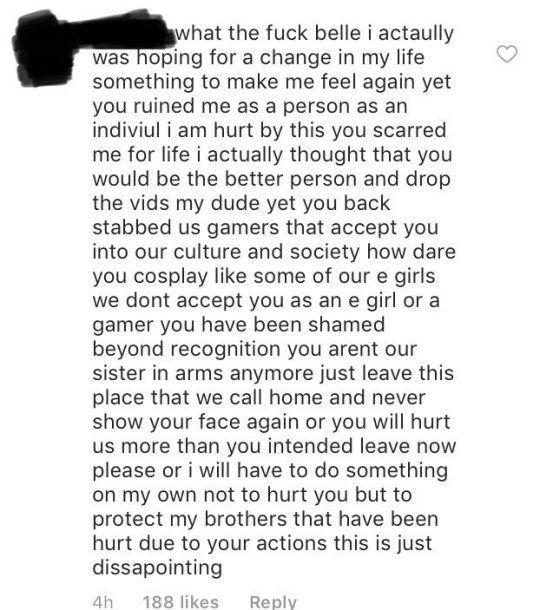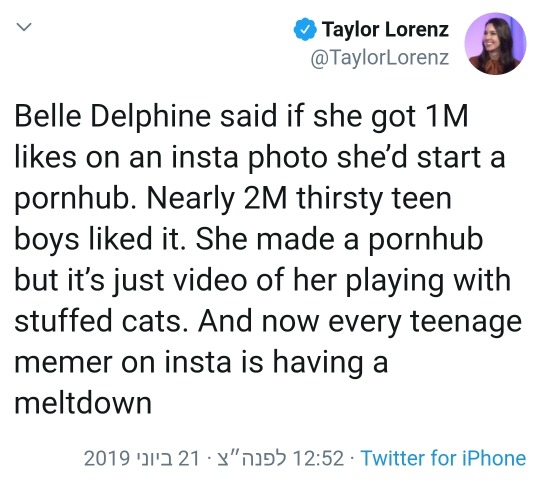Don't wanna be here? Send us removal request.
Note
@grigsby-writes
is your account dead?
probably
4 notes
·
View notes
Text
i never knew what it was like to miss someone
not until I lost you
no
it’s not permanent
but temporary leave hurts just as much
it leaves the same gaping hole in your stomach.
gives you the same gnawing in you soul.
and to think that i never even got to say goodbye.
that would’ve solidified it.
because no one says goodbye unless they mean to come back.
god,
i hope you come back.
1 note
·
View note
Text
Smut Requests
I ‘need’ to ‘practice’ my smut.
SO GIVE ME PROMPTS! It can be characters, kinks, situations, etc.
Nearly any fandom that I know of, but the characters will be aged up so that they’re legal.
Drop me an ask, I will literally do anything (lgbt, bdsm, threesome/orgy type thing, polyamory, voyeurism, furry, etc.).
Check the tags for fandoms I’m in, but here are a few:
Homestuck
Critical Role (M9 or VM)
She-ra and the Princesses of Power
DnD in general
Voltron: Legendary Defender (or any previous versions)
Harry Potter
The Dragon Prince
Simon Snow (Carry on)
Hamilton
Heathers
Chicago
Hadestowne
Be More Chill
Most Musicals, seriously, I love them all
Anything Starkid
Warrior Cats (but they’ll be written as furries or people)
Marvel
BNHA
FMAB
You know what, pretty much any anime just ask.
YOUR OWN OCS (but I’ll need like info on them and stuff)
If you don’t see your fandom here, ask because I might be into it or be willing to write it anyways.
Ask Box is here: https://grigsby-writes.tumblr.com/ask
#Smut#kink#kinky#Smut requests#lemon#owo what's this?#a post by me#more likely than you think#critical role#homestuck#She-ra#satpop#hs#cr#bnha#boku no hero fanfic#dnd#d&d#harry potter#hp fanfic#fanfiction#warrior cats#furry#furry smut#fmab#full metal alchemis brotherhood#the dragon prince#hamilton#heathers#chicago
3 notes
·
View notes
Text
Naming Chapters
I personally think naming chapters beyond the standard “1”/ “I”/“One” is an art we lose after middle school chapter books. And while I do think the minimal numbering fits certain books, I also think detailed chapter names fit others. So how do you name a chapter (and how do you know if it fits your story)?
1. Chapter names can be much longer and break the more strict nature of book titles
Chapter names can be a single word all the way up to a full sentence while still being manageable. They also don’t have to be as catchy or marketable as a book title. This means you have tons more freedom in the name. Which is really fun.
2. How to Name a Chapter
What kind of tone the chapter title evokes is important. It doesn’t have to match the overall tone, but it should mirror the one within the chapter. Just like the book title, you’re telling your readers what to expect. Here are some ways to find a chapter name (P.S. All the examples are made up):
Within the text
Ex. The sentence “The morning was awash with simple pleasures.” can turn into the title “Awash with Simple Pleasures”
Name of a side character who gets their moment in the chapter
Ex. “About Emily”
A question the reader and/or MC may have about their circumstances
Ex. “What Do You Do When the World Ends?”
A chapter’s motif
Ex. If the chapter revolves around a character getting the MC a pearl necklace, the title could be “Pearls”, “A Girl’s Best Friend”, etc.
An allusion
This could really be anything. Some of the most common allusions refer to Shakespeare, mythology, old songs, famous poems, and classic literary works. Of course, you could make an allusion to something niche (or otherwise unknown) that relates directly to the story.
Ex. “Et tu, Brute?” (referring to Shakespeare’s Julius Caesar) could a title after the reveal of a betrayal
An utterance
Anything your MC would think or say, given the opportunity to break the 4th wall, bridges the gap between character and reader a little. It’s not something they’ve said to anyone in the story. And it has an air of self-awareness.
Ex. “So This is Where We Are Now”, “This Wasn’t Supposed to Happen”
Foreshadowing
Use this sparingly and carefully, but you can plant clues and things similar in nature in the title
Ex. The chapter ends with the abrupt murder of a character using a coffee pot that was previously inconspicuous. The tile is “Coffee Pot”.
3. The “Other” Kind of Chapter (AKA The Part)
There are two main ways to split up a novel. The chapter and the part. Chapters are usually a given and can work concurrently with the story also being split into parts. If you read The Hunger Games, among many others, you’ve seen this in practice.
The parts of a novel are usually in 3s. This can (indirectly or inexplicitly) mark beginning/middle/end or childhood/adulthood/elderhood. Or it can mark more story-specific events, like The Hunger Games and its sequels. You mostly see this in sci-fi/fantasy novels, but they can go anywhere.
The titles of these parts are usually short and correlate with each other (similarly to how book titles in series can correlate).
Ex. “The Dawn”, “The Day”, “The Dusk”
Ex. “Spark”, “Flame”, “Wildfire”
Ex. “The Test”, “The Proof”, “The Job”
Ex. “4″, “16″, “25″
Where you place these divisions is up to you. It works best if it feels natural and fits in well with the pacing. You can plot your story around these parts, or add them in later. Either way, whether they work or not is going to be subjective and you might need beta readers/a critique partner to help you out.
4. So, is it right for my story?
That’s totally up to you and all I can really give you for an answer is my opinion. I think chapter titles are a given for stories with a comedic tone. There’s an easy sense of irreverence or goofiness that comes with it when used right.
Other stories can be tricky, though. I think unless your story is super serious (like a thriller), you can effectively use chapter titling. With serious stories, it might be a bit more tricky to maintain the stricter tone with title, but it’s accomplishable.
And of course, you don��t have to add titling. Sometimes the minimalistic nature of “One”/”I”/”1” fits a story better than any other title could.
If you feel so inclined to title your chapters, it can add a whole new layer of mechanics to better tell and represent your story that you can experiment with. And if you don’t feel inclined, don’t worry about it! It’s a personal choice, not something you’re missing out on. And isn’t that what your writing is? Your own style based on what you do and don’t add?
10K notes
·
View notes
Text
So, What’s it Actually Like to Work With a Small Press?
Have you ever noticed that advice for writers tends to be sort of…lackluster in some areas? Like there are some parts of the publishing process that are really easy to find information about. For example, how to write a query letter! Everybody tells you how to write a query letter! But what nobody ever seems to talk about is wtf actually happens once your book is accepted. Like, what is it actually like to be a published author?
And that’s kind of scary, right? Like you’re plunging into darkness on absolute faith that there’s something on the other side? If you can’t imagine yourself in a role, it’s kind of hard to take the leap into it. So here’s my attempt at shining a flashlight on one small corner of the publishing industry.
I can’t speak to the process of being published with a major publisher, but I can at least tell you a bit about what it’s like to work with the small press that I work with.
Short answer: Way, way cooler than I expected.
Honestly. I went into this with pretty low expectations, because you hear a lot of talk about how publishers don’t do anything to promote their authors and how first-time authors are pretty much nobodies etc. etc. so I was expecting nothing. Here’s what I got instead:
- Several months after my query, I got an email saying they loved my book and would like to publish it. There was a contract attached. I asked if I could take some time to review the contract and reach out to some agents (I still had queries out with them) and they said that was fine. I gave them a specific date I’d have an answer for them (I think it was two weeks) and sent some emails to agents. Most of the agents replied right away that I was off the hook and good luck. Some said nothing. One notable outlier emailed me back several months after the contract was signed and asked if I still had the book. (I told him no but I’d consider him first the next time I query an agent).
- I signed the contract. The terms were pretty much what I expected. If I’d had an agent I could probably have negotiated better terms, maybe. But I’m satisfied with what I’m getting, and it’s very standard for the industry.
- Which brings us to another irritating truth about the publishing business: nobody talks about money. Like, aside from short story markets (which usually post their rates right in the market listing) you never have any idea how much anything pays. This is by design. The authors who are really vague in their posts about money? They’ve probably signed a contract stating that they can’t talk about the specifics. I know it’s really frustrating. It’s just how the industry works, for better or worse (and, tbh, it’s how a lot of businesses work - if you get a raise, for example, your boss may ask you not to tell anyone because other employees aren’t getting the same raise).
- Anyway. I signed the contract and then waited around for a while for it to be signed by the head of the company and sent back to me. Then I waited around a little bit longer to be introduced to my editor. Publishing involves a lot of waiting, which you should use to your advantage to do more writing rather than brooding and pacing.
- My editor emailed me and let me know she really liked my book and approximately how long it would take for her to turn around edits. It took about that long. She sent the edits in tracked-changes format in the word doc and I spent an evening going through and pretty much approving all of them because I am not a person to quibble over the placement of a comma.
- What was editing like? Well. They were copy-edits, not substantive edits. I don’t know whether that’s the norm for this publisher or small presses or publishing in general, but that was my experience. I’m mostly fine with that, but it did surprise me; I was expecting to have to do a lot more work post-acceptance. There was no discussion about changing the title, either, which is a thing I was expecting because I’d once read that books never get published with their original titles.
- Once I’d approved the edits, it got sent of for formatting and we talked about cover design. I made a list of book covers I liked and some general things I wanted. My editor passed this along to the designer, and they had some back-and-forth before it was sent back to me, and I loved it a whole lot and had one extremely minor change. I imagine if I really, really hated it I could have gotten it re-done, but I loved it so I didn’t get to test that hypothesis.
- So with the cover and the formatting pretty much done, it’s time to start promo. I started pulling together things independently. I ended up with a list of 86 blogs/websites I wanted to approach for online promo, and I can write a whole thing about this process later so I won’t bother you with the details on it now. But there were a few things that were really interesting and I didn’t know about or didn’t expect, so I’ll talk about that instead!
- Blurbs! You know those quotes from other authors and such that are on book covers or on a page inside the cover? Ever wonder where those come from? You ask for them. This should not have been mind-blowing to me but it totally was. My editor approached some people, and then asked me if I had anybody to approach, which led to me sending some really awkward emails both to complete strangers (people with books I really liked that were similar to my own) and to friends/acquaintances who were more successful than I am. This was terrifying, but also really cool. I had to remind myself constantly: you are a professional sending business correspondence to other professionals. This did not stop me from squeaking when anybody replied.
- Reviews! I submitted a ton of requests to people with the ARC (advanced review copy). My editor reached out to solicit some, too. Like I said, I’ll write a thing about this later, but just know that I’m not and have never been wholly on my own in this regard.
Over the course of all this I’ve become gradually more familiar with my editor. We’re Facebook friends now. I have emailed at odd hours with panicked requests (“Is it too late to rewrite the jacket copy? here are several paragraphs of alternative ideas”) and she’s pinged me with opportunities and kept me updated on what’s going to happen next. This publisher is only open to submissions for a narrow window during the year (about a month or two) and I think that’s mostly so each author can get this kind of personal attention, and I love that.
Honestly, it’s really great, and a much more hands-on and personable experience than I had anticipated. I strongly doubt that publishing with a big house is like this at all. But publishing with a small press, for me anyway, feels a lot like a VIP treatment, even if I’m not, like…getting flown around the country for book tours or anything like that. Just having somebody who really believes in your book who answers your emails within a couple days of sending them is…pretty freaking awesome?
10/10 would recommend Journalstone/Trepidatio to anyone.
You can scope out their website here: http://journalstone.com/mainstore/
You’ll note that my book (River of Souls) is one of just two new releases slated for late summer. You’ll also note that the other book, Doorways to the Deadeye, looks fucking phenomenal and you should buy it (and I’m not just saying that because Eric Guignard wrote very nice things about my book).
But anyway, that’s my experience so far. I’ll try to follow up after the book has been released to give some more insights.
595 notes
·
View notes
Photo
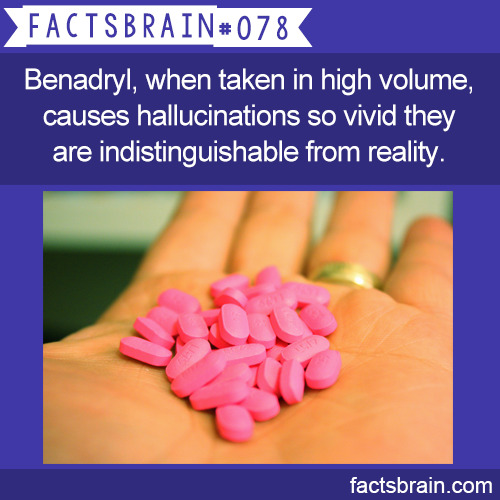
Benadryl, when taken in high volume, causes hallucinations so vivid they are indistinguishable from reality. - weird, interesting & funny facts
230K notes
·
View notes
Text
scott lang, completely misunderstanding peter parker’s power: hey if u want man we could get tiny and just like hang out, i don’t know if you’ve ever been in a lego castle but it’s pretty sweet
peter parker: u have no idea how much physical pain having to turn this offer down is causing me but,
292K notes
·
View notes
Text
Your Character: A Masterlist of CC Guides
Character creation and development:
Character creation questionnaire
Character foils
Core values
Core values 2
Creating a character from scratch
How eating an orange reveals character
Fears, weaknesses, and pet peeves
Flaws
Flaws and Vices (list)
Inventory
Nicknames
Outline for a distinct character
Personal effects
7 Key Traits of Enduring Characters
What does your character know?
Your character as a paradox
Your character’s closet
Dealing with large character casts
Types of Character:
Creating a likable villain
Strong Female Characters
Supporting characters
Throwaway characters
Mary Sue / Gary Stu
Loner Characters
Character Arc:
Building a character arc
Series Characters
Steps of change
Swoons and wounds
Character dialogue:
How your character asks for help
Character-specific dialogue
Cursing
Speech patterns
What we say vs. what we mean
Who has control
Relationships:
Power imbalances
Pacing your romance
How to avoid unintentional romantic subtext
On the page:
Creating a strong first impression
An exaggerated first impression
Characterization through appearance
Description
Showing emotion
Staging
Thank God I have (insert character here)
Torturing your Character (and reader)
17K notes
·
View notes
Text
So you finished your first draft... What now?
I sometimes see posts telling you what to do after you finished writing. Many of them focus on getting the sentences to flow nicely, catching typos or making sure the grammar is sound. For me, there’s much more work to be done before I can get on with word choice and grammar. I want to tell you about the different stages of editing I’m planning.
I’m working from big to small, because it’s no use fretting over synonyms in a scene you’ll end up cutting out later.
These are my drafts:
1. Just write
Check. You’ve gone that. You got the first draft on the paper. Congratulations! You rock!
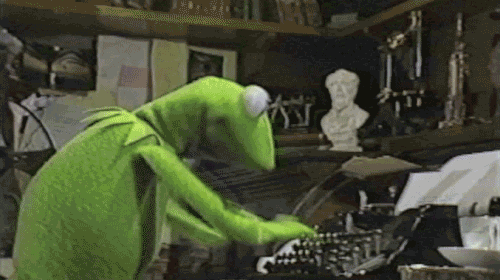
2. Add and cut
You’ve probably heard that editing is cutting. “A second draft needs to be shorter than the first draft, because you cut out any unnecessary words.” Yes and no. I agree you need to cut them out, but not yet.
Read through your entire story first, noting if anything needs to be added or cut out. Scenes where you were telling and you needed to be showing: rewrite them, add more words. For example: “And then they fight.” No, show me the fight. Scenes where you repeat yourself: cut out the repetitions if they have no function.
Think of pacing. Pick it up for the exciting scenes and then give your reader some breathing room. Pick it up towards the end. Add a small filler scene to change a regular reveal into a cliffhanger.
This is also the draft in which you fix any plotholes and rearrange scenes if they need to be in a different order.
If you finish this draft, you completed probably 80% of the work needed on your story. *high five!*
3. Group the scenes into chapters
A chapter consists of several scenes. If you have not grouped them yet, read through the entire story and place the chapter breaks where they feel right. If you have written your story into chapters, read it through to make sure that the chapter breaks are where they supposed to be.
Make sure there is a hook, big or small, at the end of each chapter to make the reader read on. If there isn’t one, add one or put the chapter break somewhere else.
4. Are there darlings to be killed?
You know your darlings. Scenes, characters, ideas or sentences you don’t want to cut because you really like them, but they serve no purpose in your story. Or worse, you rewrite a good plot into a mediocre one to make sure the darling doesn’t need to be killed.
Knowing myself, any darlings in my story probably involve random mentions of space and dinosaurs.
How to spot darlings: read through your entire story and ask yourself honestly:
Is the story structure still working? (Plot/pacing/…)
Is everything logical?
What’s the function of this chapter? Of this scene? Of this paragraph?
If it serves no purpose, kill them.
Notice I’m still not telling you to check the grammar.
5. Voice
By know, you really know your characters. You know how they should react, how their thoughts sound, and if they have any quirks. Read through your story and make sure all the actions and dialogues are in character. Pay extra attention to the first part of your story, because you didn’t know them as well as you did at the end.
You can do this for all your characters in one go, or go through your story for each character individually, whatever serves your story best. I will go through my story four times in this draft, once for each of my four major characters.
6. Optional genre-specific draft
I’m writing something funny, so I’m dedicating an extra draft to make sure there is enough humor in it. If you write a romantic story, check for romantic details. If you write horror, check if you need to add extra creepy details. Add foreshadowing if that makes your story richer.
7. The time has come
Yes. I’m finally telling you to check the grammar, synonyms, tenses, unnecessary words, adverbs, variations of “said”, commas versus semicolons and all the other stuff you want to check. Go wild.
8. Extra things publishers and agents like
Make sure your first sentence is spot-on. Make your first scene brilliant. Make your first chapter a perfect chapter.
Rewrite the first and last alinea of every chapter. The goal is to make people want to gush to their friends, “I’m reading this book and you NEED to hear this paragraph, let me read it to you because it is the. best. ever.”
***
I know it can be difficult to see your mistakes and not tackle them immediately. For me, it works if I signal them to future-me: I write “bad writing”, “research this” or “why????” in the margins and I put a squiggle under weird paragraphs or words. The reason you want to tackle it now is to make sure the idea or the mistake doesn’t escape you later. By signaling it, you make sure it can’t escape, but you’re not losing time with micro stuff when you still have macro stuff to do.
Note that I will probably only change like 0,1% of the story each time I go through it, especially in the later drafts, but this way I won’t get distracted by other to do’s. If I try to do everything in one or two drafts, I can’t possibly see or do everything.
And now you’re done, you magnificent unicorn of a human being! You deserve the highest of fives!

I hope this is clear! You can always ask me if you have more questions. Follow me for more writing advice.
Tag list below, people I like and admire. If you want to be added to or removed from my tag list, let me know.
Keep reading
3K notes
·
View notes
Text
gen z cartoonists rise up... we gotta completely rebuild the animation industry from scratch but with morals this time
33K notes
·
View notes
Text
Fictional Character: *shown stimming, infodumping, and/or other traits of neurodivergence without being mocked or stereotyped*
ADHD, & Autistic Folk:
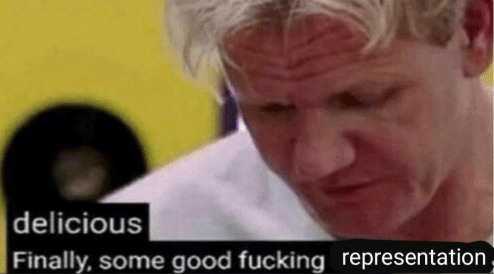
12K notes
·
View notes
Text
Ok so I don’t know if you have noticed but into the spider verse does an AMAZING job at telling Gwen’s backstory in just a few minutes, now this does contain spoilers for Gwen’s backstory
In Gwen’s backstory scene you can see the shadow of her beating up Green Goblin right?

Now if you pay attention to the Green Goblin’s shadow you can see it turning into a man like this;

This is Peter Parker, in Gwen’s universe Peter Parker is her best friend and also the Green Goblin

You can even see the green blue scales left on his body after he is back to his normal state
And you can see the look of terror on Gwen’s face after she realizes what she has done, and they don’t even show her face
Then later when Peter meets MJ in the restaurant Gwen tells Peter that “it’s not your MJ, trust me I’ve been there”
She is directly talking about him, right in front of him, and he doesn’t even know it
Gwen goes through the entire movie having to look at Peter B. Parker and remember that she killed her Peter
And this concludes my essay for why Gwen is an underated character and y'all need to give her the respect she deserves
47K notes
·
View notes
Text
My advice when folks are struggling with writing in the third-person omniscient is to Lemony Snicket it up. Give your omniscient narrator strong opinions about what’s going on. Don’t fall into the trap of assuming that the third-person omniscient perspective must also use the objective voice; those are two separate things, and many of the most popular and successful writers who’ve written in the third-person omniscient do not, in fact, use the objective voice.
80K notes
·
View notes
Text
A dating service where matching is based on people’s search history exists. You’re a serial killer. You go on a date with a writer.
482K notes
·
View notes
Text
Man that guy who painted the Mona Lisa is pretty good
anyone know if he does commissions?
151K notes
·
View notes

